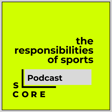
Fairness and efficiency of the anti-doping system
Drink only bottled water, eat organic chicken & organic eggs and make sure that the person you kiss or spend night with does not take drugs. Sounds like weird advice to ordinary people, yet it can be crucial for the athletes not to be banned from performing and ruin their career because of the threshold found in their blood while testing for doping.
Nowadays laboratories can detect not only nanograms of prohibited substances but picograms, which are one trillionth of a gram… like one splash of salt in an entire swimming pool. No scientists can distinguish it and according to the rules the burden of proof lies on the athletes who need to make an investigation and sometimes spend thousands to justify they are innocent.
We spoke with Paul J. Greene, the Founder of Global Sports Advocates and one of the world’s leading sports lawyers on this topic, about the fairness and efficiency of the anti-doping system.
He sees inspiration in the way UFC and several American leagues are dealing with this issue by switching the burden of proof to the anti-doping agency in cases where the level of the prohibited substance is too little. Now it’s for them to make an effort and prove that it was an intention: a complete game changer.
And it’s not the only way to deal with it. To find out more, we invite you to listen to this conversation.
Check out our website score-sport.com and our LinkedIn page, to find more information about what we do. Please rate, comment and share, if you feel like it.
This episode was recorded in November 2022.
